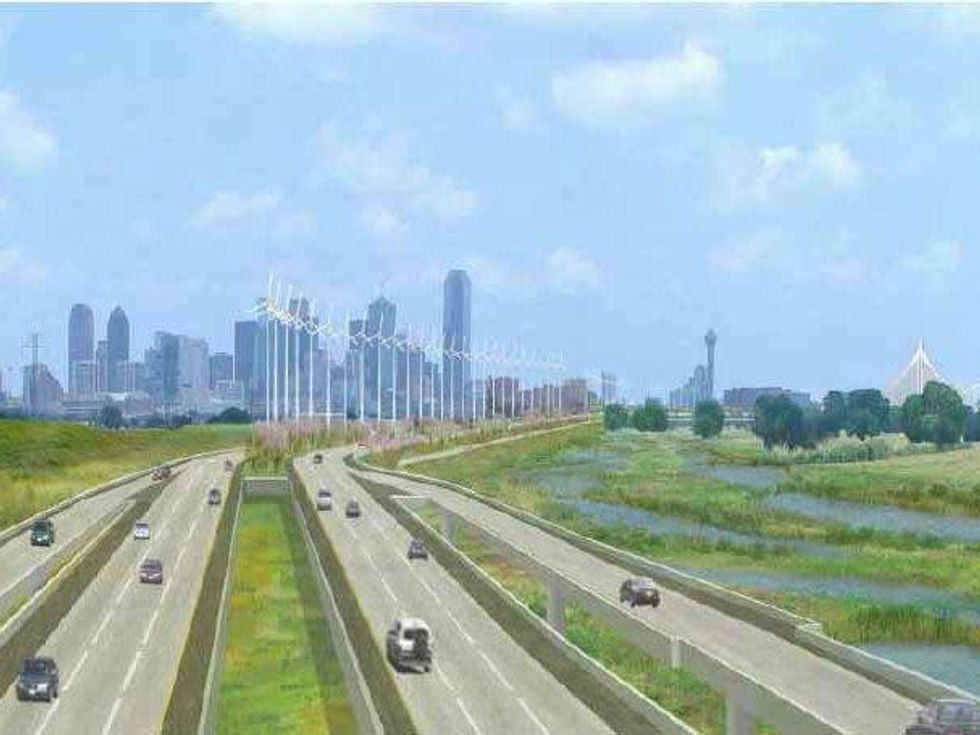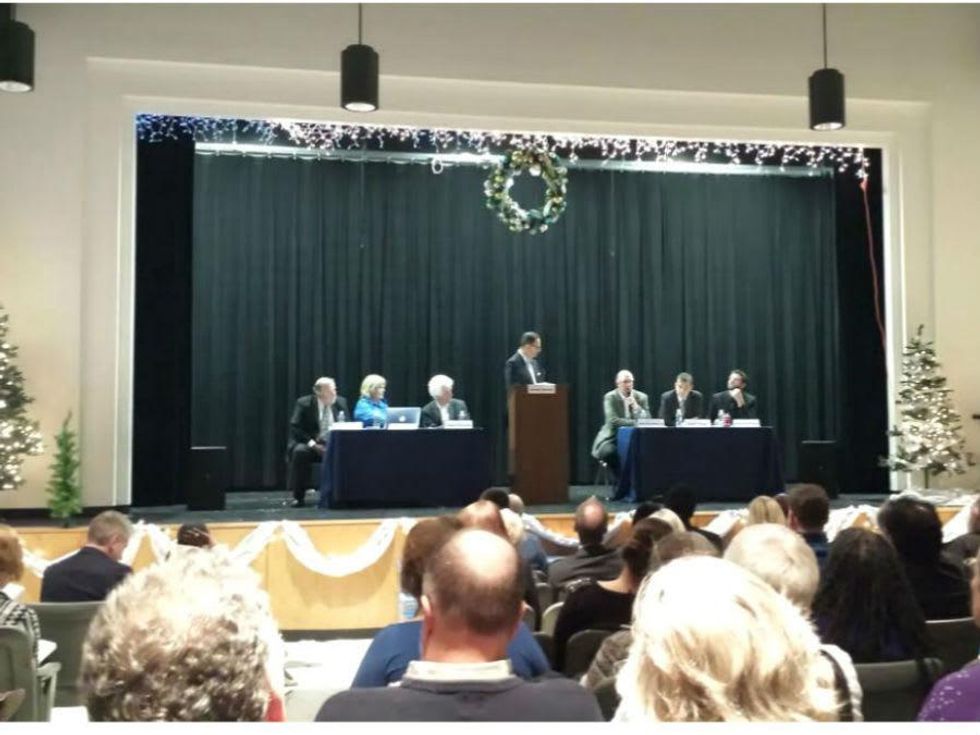Trinity Toll Road Talk
Trinity toll road meeting draws capacity crowd of non-supporters
A town hall meeting on the Trinity River toll road on December 3, featuring an all-star panel of speakers, drew a capacity crowd, nearly all of whom made their opposition clear.
Hosted by State Rep. Rafael Anchia, the panel included three for and three against, with advocates Michael Morris, of the council of governments; former city manager Mary Suhm; and Craig Holcomb, president of the Trinity Commons Foundation, on the left. They faced off against toll road critics architect Bob Meckfessel, Dallas city council member Scott Griggs and Patrick "Walkable DFW" Kennedy on the right.
Aside from the increasing controversy surrounding the toll road, getting those six up on the stage at the Rosemont Elementary School in Oak Cliff got the big turnout of approximately 500 people. One or two audience members spoke out of turn, including Dallas City Council member Vonciel Jones Hill, but Anchia's measured moderation kept the event civilized and polite. He posed questions to panelists on both sides on issues such as destruction of habitat and the viability of alternative transportation modes, and he let them answer without interruption.
Anti-toll road comments by Griggs and Kennedy frequently drew enthusiastic applause.
Recurring themes from the left included a noble-sounding defense of "economic justice" for South Dallas commuters, with Morris peculiarly fixated on workers driving to Parkland Hospital who might need to use a tollway to avoid being late for work.
"If I'm a blue collar worker who gets points against me for being late to work, or if I'm late for daycare, my out-of-pocket changes and I can make an educated choice," he said.
Morris frequently resorted to dulling jargon that ended up obscuring the clarity of his comments, such as this ramble: "complicated, maximize potential impact, mandate, system's benefits, 52,000 hours, cross-ratio, high-density, hundreds of thousands of persons, what is the range of transportation options."
Holcomb, who admitted he wasn't looking forward to appearing on the panel, said that the road would follow the Balanced Vision Plan, devised in 2003.
But Griggs championed the idea of bringing development to Oak Cliff rather than forcing workers to drive north for jobs. "I remember Central when it was a four-lane blacktop," he said. "[Building another road means that] instead of going on a diet, we buy a bigger belt. ... Why can't we invest in the Southern sector and create jobs?"
In November, Anchia conducted an informal survey in which 94 percent of the respondents said they were opposed to the toll road. Responding to questions about his methodology, he said that he'd commissioned a more scientific poll by a national polling firm which found 2-to-1 against the road, with one third of respondents undecided.
Morris quickly came back with research he'd done, finding that North Oak Cliff supported the tollroad in the 2007 election.
"That was in 2007?" Anchia asked, then said sarcastically, "I appreciate your doing that work."
When Anchia asked about balancing the needs of regionalism versus the needs of Dallas, Morris asked how many people drove to the meeting and said that Dallas wasn't Detroit or New York. He said that the voters had already approved of the toll road twice, in 1998 and 2007.
But Meckfessel said that was a different generation.
"Laura Miller no longer supports this road," Griggs said. "Designer Alex Krieger has apologized. This is not the road we voted on."


